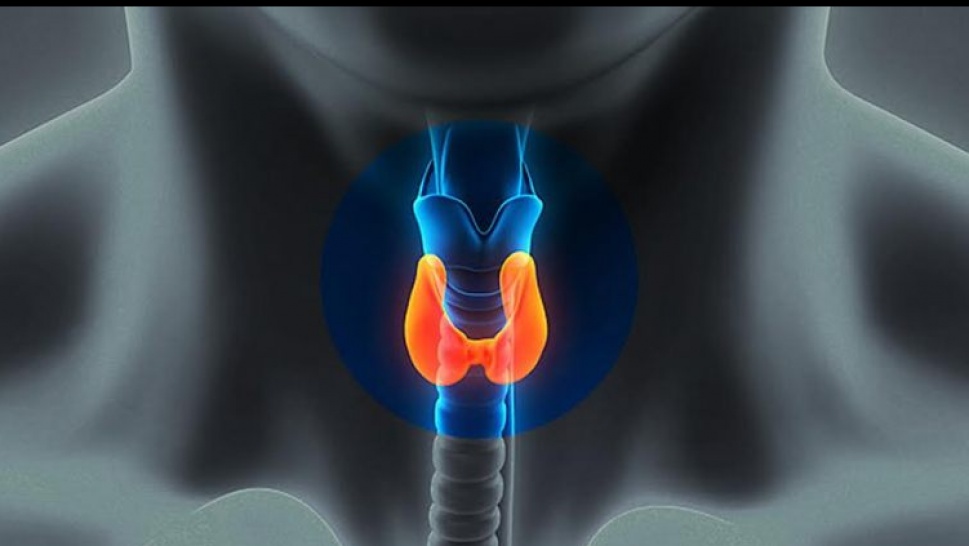The thyroid (THY-royd) gland, a small butterfly-shaped gland in the front of your neck, makes thyroid hormones. Thyroid hormones travel from the thyroid gland through the blood to all parts of the body, where they do their work.
Why are thyroid hormones important?
Thyroid hormones help all your organs work well. They control how your body uses food for energy.
Thyroid hormones affect your metabolism rate, which means how fast or slow your brain, heart, muscles, liver, and other parts of your body work.
If your body works too fast or too slowly, you won’t feel well. For example, if you don’t have enough thyroid hormone, you might feel tired and cold. Or, if you have too much thyroid hormone, you might feel nervous, jumpy, and warm.
How does the thyroid gland work?
Your thyroid gland is controlled by the pituitary (pah-TOO-ah-tare-ee) gland, a pea-sized gland located at the base of your brain. The pituitary gland keeps checking the amount of thyroid hormone in your blood. Then it tells your thyroid to make more or less hormone so there’s always the right amount.
Your thyroid uses iodine to make thyroid hormone. Iodine comes from food, mainly seafood and dairy products. It is also added to salt since it can be hard to get enough from food.
Your thyroid gland is located in the front of your neck.

What can go wrong with my thyroid?
A few things can go wrong. But you can get treatment to fix thyroid problems. Anyone—even babies—can have thyroid problems.
Having thyroid hormone levels that are too low (underactive thyroid gland)
Sometimes the thyroid gland doesn’t make enough thyroid hormone, which is called hypothyroidism. When you don’t have enough thyroid hormone, parts of your body work too slowly.
Symptoms of underactive thyroid include:
Feeling tired
Feeling cold even when other people are comfortable or even warm
Having a slow heart rate and dry skin
Being constipated
Gaining weight even though you’re not eating more or exercising less than usual
In children, growing very slowly
Having thyroid hormone levels that are too high (overactive thyroid gland)
Sometimes the thyroid gland makes too much thyroid hormone, which is called hyperthyroidism. Think of your body as a car and your thyroid as the engine. An overactive thyroid makes your body idle too fast.
Symptoms of overactive thyroid gland include
Feeling nervous and irritable
Having trouble concentrating
Feeling too warm even when other people don’t feel warm
Having a fast heart rate and diarrhea
Having trouble sleeping
Losing weight without trying
Having a lump in your thyroid gland
You can have a lump or swelling in your thyroid gland, called a nodule (NOD-jule). Nodules may have no effect on how the gland works, or can lead to too much thyroid hormone. Most nodules are benign (not cancer), but some can be cancerous.
Having an enlarged thyroid gland
When your thyroid is enlarged (called a goiter [GOY-ter]), it can produce too much, not enough, or just the right amount of thyroid hormone. Your doctor will try to find out why your thyroid is enlarged.
Can I live without my thyroid?
Yes. If your doctor needs to remove your thyroid, you can stay healthy by taking a thyroid hormone pill every day.




Share the News